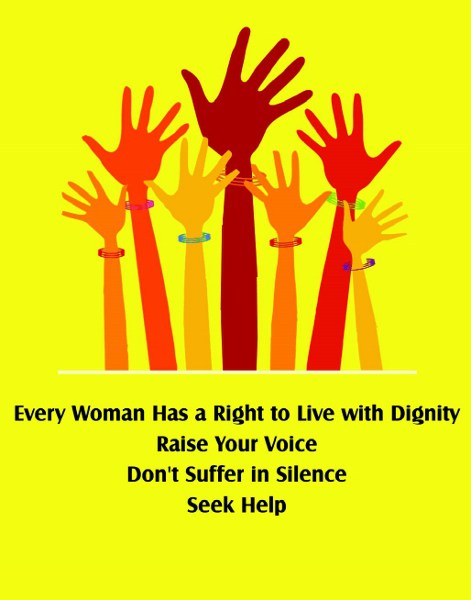Posted on May 26, 2017
The Centre for Human Rights calls for urgent action to be taken by the University of Pretoria to engender a campus culture of non-violence and non-discrimination through the accelerated review of the University’s sexual harassment policy and the provision of comprehensive and accessible services for survivors of sexual violence. The University must also ensure that perpetrators of sexual violence and slanderous remarks that defame women are condemned and are held accountable for their actions.

The recent incidences of violence against women have sparked a national outcry about the safety, dignity and value of women and girls in South Africa. A culture of violence permeates all levels of our society. The degrading and sexist comments at the ‘Serrie’ Residence Competition and other acts of violence against women at the University of Pretoria are proof of this alarming state of affairs. South Africa has one of the highest rates of violence against women in the world. The cases of Karabo Mokena, Lerato Moloi, Popi Qwabe, Bongeka Phungulaand three-year-old Courtney Pieters, recently reported by the media, are stark and sad reminders of something much more pervasive and deep-seated: incidences of violence against women have been occurring and still occur on a daily basis and often go unreported.
In a country such as South Africa, where studies show that 1 in 4 women in the general population have experienced physical violence at some point in their life,[i] and where a national study on female homicide concluded that a woman is killed every six hours by their intimate partner,[ii] there can be no tolerance of any conduct that undermines the dignity of women and is harmful to them. Most violence against women is a result of, and is sustained through the devaluing of women and the normalizing of such acts.
While these statistics are staggering, they are not as frightening as the culture that normalizes violence, intolerance and discrimination, even within institutions of higher learning, the very places where reforms and changes should be engineered. The sexist and offensive posters that were held up at a residence event at the University of Pretoria on 16 May exemplifies a culture that denigrates and objectifies women, and underlines the need for urgent action. The incident at the ‘Serrie’ Residence Competition is just one of the many manifestations of a culture that has taken hold within the greater society, and at the University. For too long, it has been acceptable to pass sexist remarks and joke about sexual and other forms of violence. For too long, women have been silenced from speaking out about such violations. It has also come to light that a few women who had been silently protesting such violations within the University environment were, over the weekend, manhandled and victimized by security and law enforcement authorities charged with keeping the peace and protecting the rights of all individuals, including the victims.
On this premise, the Centre for Human Rights joins its voice to that of civil society organizations, the South African public, and indeed the international community, in speaking out against the prevalent culture of violence within the country, and more specifically within the University of Pretoria. This culture of violence is a result of deep-rooted inequality in the roles, rights and opportunities of men and women, and attitudes and social norms that condone or normalize such violence. It is a culture that must be addressed at individual, community and government level.
We call on the University of Pretoria to create a counter-culture in which the dignity of every person, men and women alike, are upheld. We commend the steps being made by the University to review and engender its policies, particularly its sexual harassment policy, to protect the rights of women and minority groups and create a safer space for the actualization of their rights. However, these actions need to be accelerated.
The University needs to take urgent action to ensure that services available to survivors of sexual violence, including access to medico-legal and psychosocialsupportare comprehensive. These services must be accessible 24 hours, 7 days a week. The University also needs to raise awareness of the availability and protocols for accessing such services, so that they become effective in protecting the rights of women as they are designed to.
It is also important that all perpetrators of such violence are condemned, and are held accountable for their actions, and that survivors are not re-victimized or silenced. The University must also take proactive steps to ensure that such incidents do not happen again. The University must exercise its duty to protect women from the very real fear of and experience of all forms of violence, which many women live with, daily. It must accelerate the revision of its policies to outlaw statements that are intended to, or have the effect of, inducing in women fear, humiliation or degradation. Young women who dare stand up against such violations must not become the targets of reprisals. Instead, we must as a community stand together with them in ending a national and campus culture that ultimately culminates in the rape of women.
For more information, please contact:
Ms Patience MUNGWARI MPANI
Programme Manager: Gender Unit
Centre for Human Rights, University of Pretoria
Tel: (012) 420 4525
[email protected]

[i] P Mpani and N Nsibande 'Understanding Gender Policy and Gender- Based Violence in South Africa: A Literature Review'(2015) For Soul City: Institute for Health & Development Communication
Copyright © University of Pretoria 2024. All rights reserved.
Get Social With Us
Download the UP Mobile App